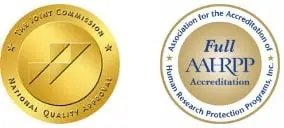Coronary Artery Bypass Graft Surgery (CABG)
64 year old gentleman from Fiji was suffering from chest discomfort for more than 2 years, had uncontrolled sugar levels and impaired kidney function
30 November, 2022: Mr KM, a 64 years old gentleman from Fiji recently underwent robot-assisted total arterial coronary artery bypass surgery at Indraprastha Apollo Hospitals, New Delhi. He had been suffering from chest discomfort for the past 2 years and had an uncontrolled blood sugar levels and impaired kidney function. Additionally, on examination he was also diagnosed with moderate heart dysfunction- his heart was not pumping enough blood, which put him at the risk of heart failure.
Why not Open heart surgery?
The patient had been advised an open heart surgery in his native country, however he was sceptical due to the possibilities of multiple complications involved like chest bone being cut, blood loss, kidney failure and post-surgical recovery. The surgery would be challenging because the patient had multiple underlying co-morbidities, hypertension, unstable sugar levels and lower heart function.
With his condition deteriorating and taking a toll on his overall health he was referred to Indraprastha Apollo Hospitals, New Delhi. Here he was admitted under the supervision of Dr MM Yusuf, Specialist Consultant, Robotics and Minimally Invasive Cardiac Surgery, Dr Mukesh Goel, Senior Consultant, Cardiothoracic surgery & Dr Varun Bansal, Consultant, Robotics and Minimally Invasive Cardiac Surgery, Indraprastha Apollo Hospitals.
As a first step, Mr KM was admitted to the hospital for 5 days prior to the surgery to stabilise his kidney function. Once he was stabilised team of doctors conducted the robot-assisted total arterial triple vessel coronary artery bypass surgery on him. Post-surgery he was kept for observation in the ICU and then discharged. Currently, he is out of danger and walking around without support and performing all regular activities independently.
Robotic Cardiac Surgery
Dr MM Yusuf, who led the robot assisted cardiac surgery, said, “Robotic assist CABG (Coronary Artery Bypass Graft Surgery) is the least invasive cardiac procedure. It is a symbiosis between state-of-the-art technology and surgical expertise. It offers great short and long-term benefits by subjecting patients to minimal cuts, less bleeding, less pain, early recovery and quick return to active life; which is a distant target by open chest surgery. Total arterial bypass surgery also provides best long term outcome with less risk of reintervention later in life. Dr MM Yusuf & his team have been performing this procedure routinely at Apollo Hospitals Chennai over the past 2 years.
Speaking about the procedure, Dr Mukesh Goel said, “While fewer acute heart attack cases are being admitted to hospital emergency units, there is a marked increase in deaths from cardiac arrest at home, probably due to the postponement and delay in seeking medical attention. It is, therefore, important to emphasise that heart patients must not ignore any deterioration in symptoms and/or delay medical attention. Apollo Hospitals have been known to introduce the latest medical technology in India for the benefit of the patients. Minimally invasive cardiac surgery avoids sternal split and aids in a quick recovery”.
Dr Varun Bansal added,” Technology has ushered in a paradigm shift in healthcare. From performing complex surgeries to providing remote care with telehealth, it has brought a massive transformation, taking medical treatment to unimaginable heights. Even though the use of robots in surgery isn’t new, emerging technologies and innovation have expanded their scope to help doctors perform difficult medical procedures and surgeries easily with more precision, comfort and speed.” Following Mr KM, another patient from India, who had coronary artery disease successfully underwent Robotic assist total arterial triple vessel bypass surgery and has reclaimed his active life within a week.
About Indraprastha Apollo Hospitals:
Indraprastha Apollo Hospitals, India’s first JCI accredited hospital, is a joint venture between the Government of Delhi and Apollo Hospitals Enterprise Limited. Commissioned in July 1996, it is the third super-specialty tertiary care hospital set up by the Apollo Hospitals Group. Spread over 15 acres, it houses 57 specialties with more than 300 specialists and more than 700 operational beds, 19 operation theatres, 138 ICU beds, round-the-clock pharmacy, NABL accredited laboratories, 24-hour emergency services and an active air ambulance service. Apollo Hospitals Delhi has the leading programme in kidney and liver transplant in the country. The first successful paediatrics and adult liver transplants in India were performed at Indraprastha Apollo Hospitals. The hospital is at the forefront of medical technology and expertise. It provides a complete range of latest diagnostic, medical and surgical facilities for the care of its patients. The Hospital has introduced the most sophisticated imaging technology to India with the introduction of 64 slice CT and 3 Tesla MRI, Novalis Tx and the integrated PET Suite. Indraprastha Apollo has also pioneered the concept of preventive health check programmes and has created a satisfied customer base over decades. The Hospital has been consistently ranked amongst the best 10 hospitals in India by The Week survey for the past few years.



